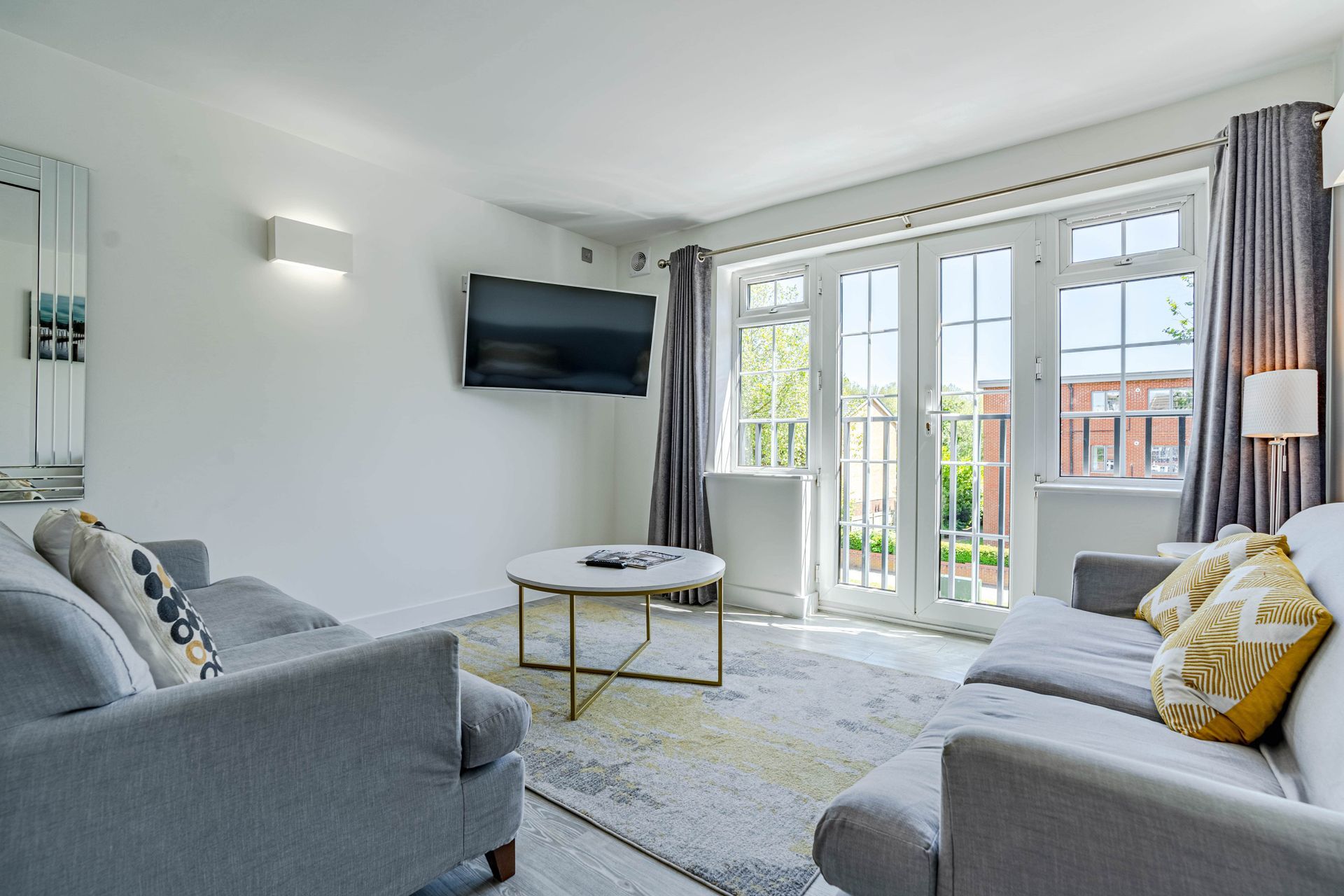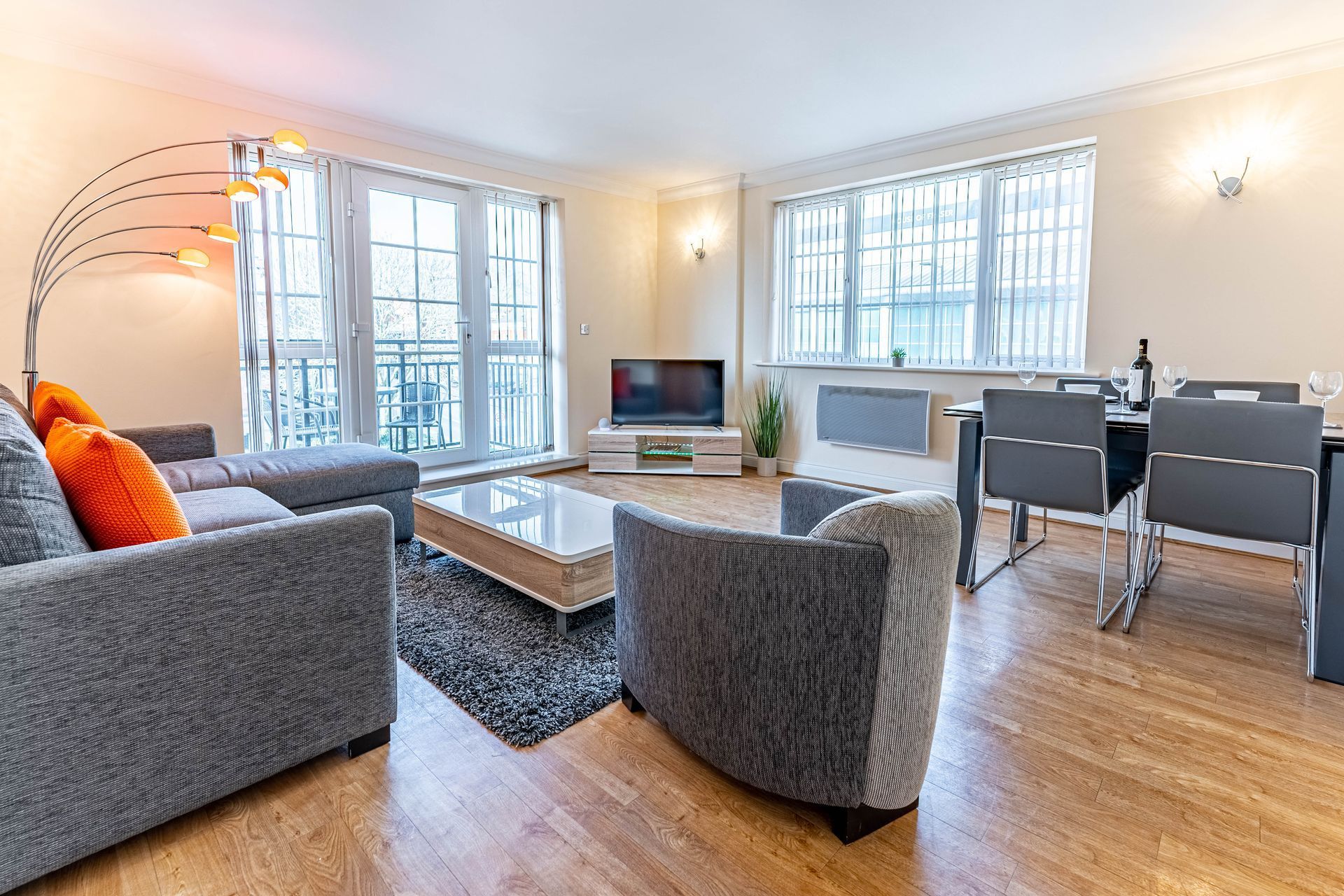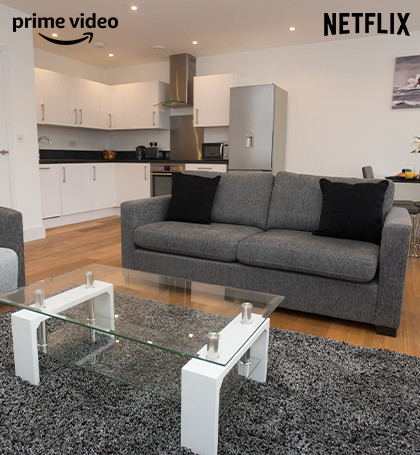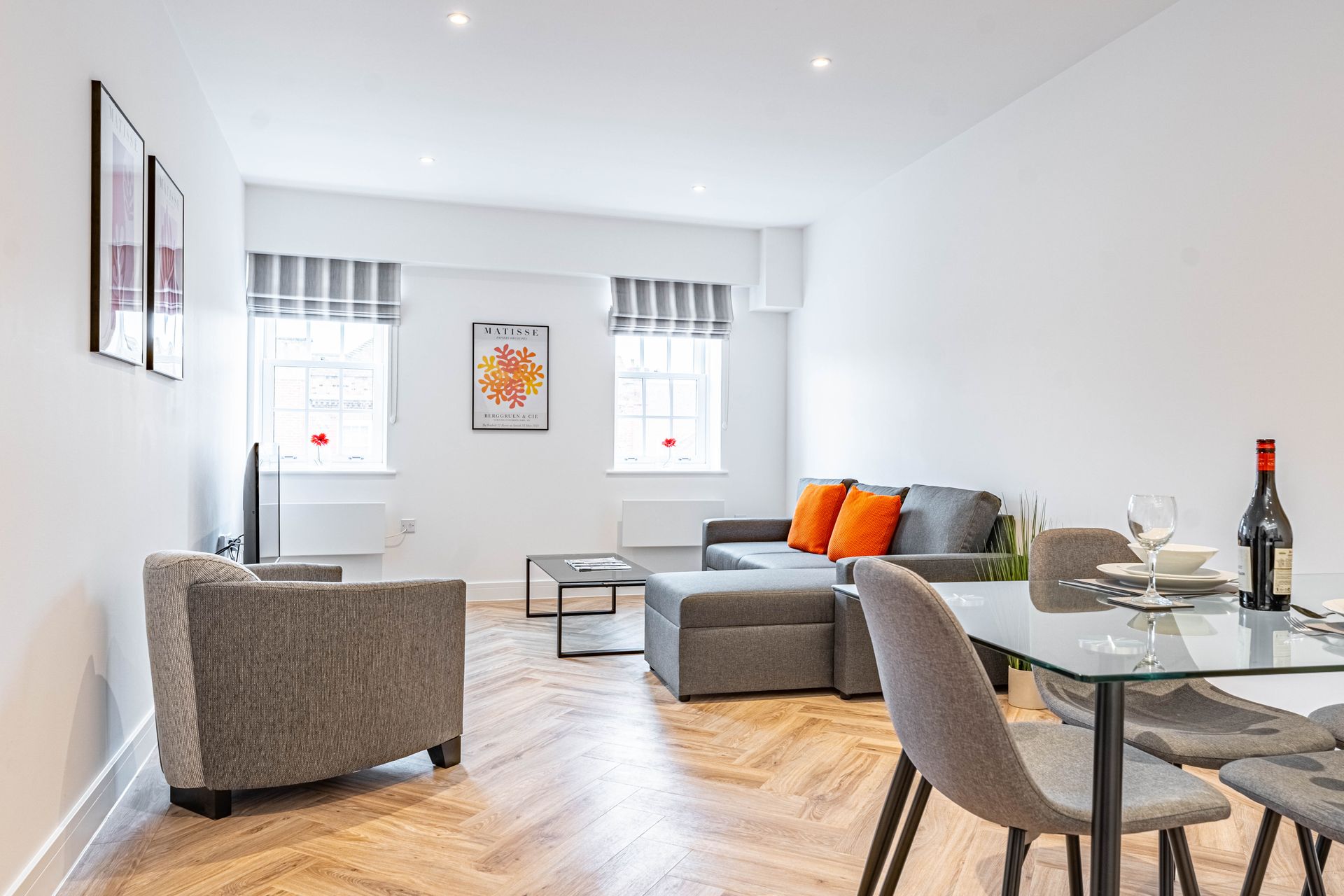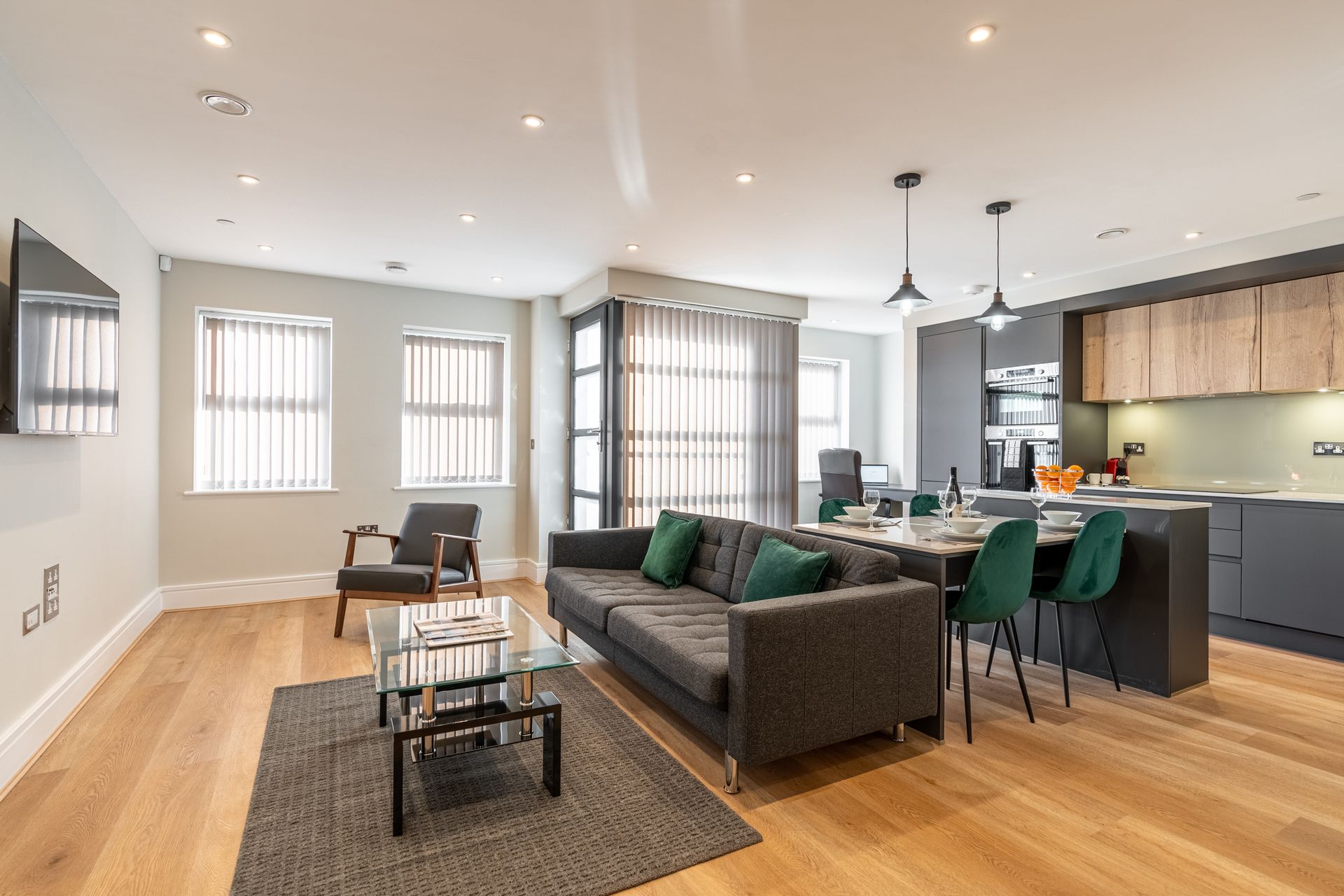How the Serviced Apartments Sector is Ever-Growing
The Driving Forces Behind the Serviced Apartment Revolution
The serviced apartments industry has seen remarkable growth over the past decade as more travellers opt for these flexible living spaces over traditional hotel accommodation. The sector has grown in popularity to become a mainstream hospitality option that continues to expand across the UK and globally. A recent report found the
serviced accommodation sector is worth £1.7bn to the UK economy, directly supporting 6,050 jobs.
This is paragraph text. Click it or hit the Manage Text button to change the font, colour, size, format and more. To set up site-wide paragraph and title styles, go to Site Theme.
The Serviced Apartments industry has gone from strength-to-strength over the last several years, as more and more are choosing them over the traditional hotel room.
However, whilst it’s clear to us that serviced apartments reign supreme, there have also been some specific factors which have led to advancement within the industry. Here are the ones that we believe have led to the most significant changes:

Professionalisation of the Industry
Serviced apartments have existed in the UK for decades, the industry experienced relatively modest growth for many years. Hotels had established themselves as the trusted standard for travel accommodation, creating significant barriers to entry for alternative lodging options. This historical dominance meant the serviced apartment sector struggled to gain widespread recognition and acceptance.
However, recent years have witnessed a remarkable shift. Occupancy rates in serviced apartments have grown substantially as travellers increasingly seek spacious, amenity-rich environments when visiting new locations. The sector has strategically observed and learned from the hotel industry's successes and shortcomings, implementing best practices while avoiding common pitfalls.
This approach has yielded impressive results. According to property experts Savills, “Serviced apartments are expected to perform strongly in 2025, particularly in key gateway cities, driven by their appeal to travellers seeking extended stays and flexibility.” Another report said, “The outlook for the UK's serviced accommodation sector in 2025 suggests an optimistic trend as many experts predict an increase to the sector's £1.7 billion value.”
Digital Transformation and Distribution
The rise of digital platforms has fundamentally transformed how travellers discover and book accommodation. While Airbnb is often viewed as a competitor to serviced apartment providers, its massive market presence has actually benefited the broader sector in several ways.
Firstly, Airbnb has educated millions of consumers about alternatives to traditional hotel stays, effectively normalising the concept of apartment-style accommodation. This increased awareness has created a fertile market environment where serviced apartment providers can flourish.
Secondly, the rise of specialised booking platforms focused on professional serviced apartments has improved visibility and accessibility. These platforms have implemented standardised quality metrics and review systems that build consumer confidence.
The sector has also embraced technology throughout the guest journey, from seamless check-in processes to smart home features that enhance the overall experience while reducing operational costs. These innovations have particularly appealed to tech-savvy business travellers and younger demographics seeking frictionless accommodation experiences.
Changing Consumer Preferences
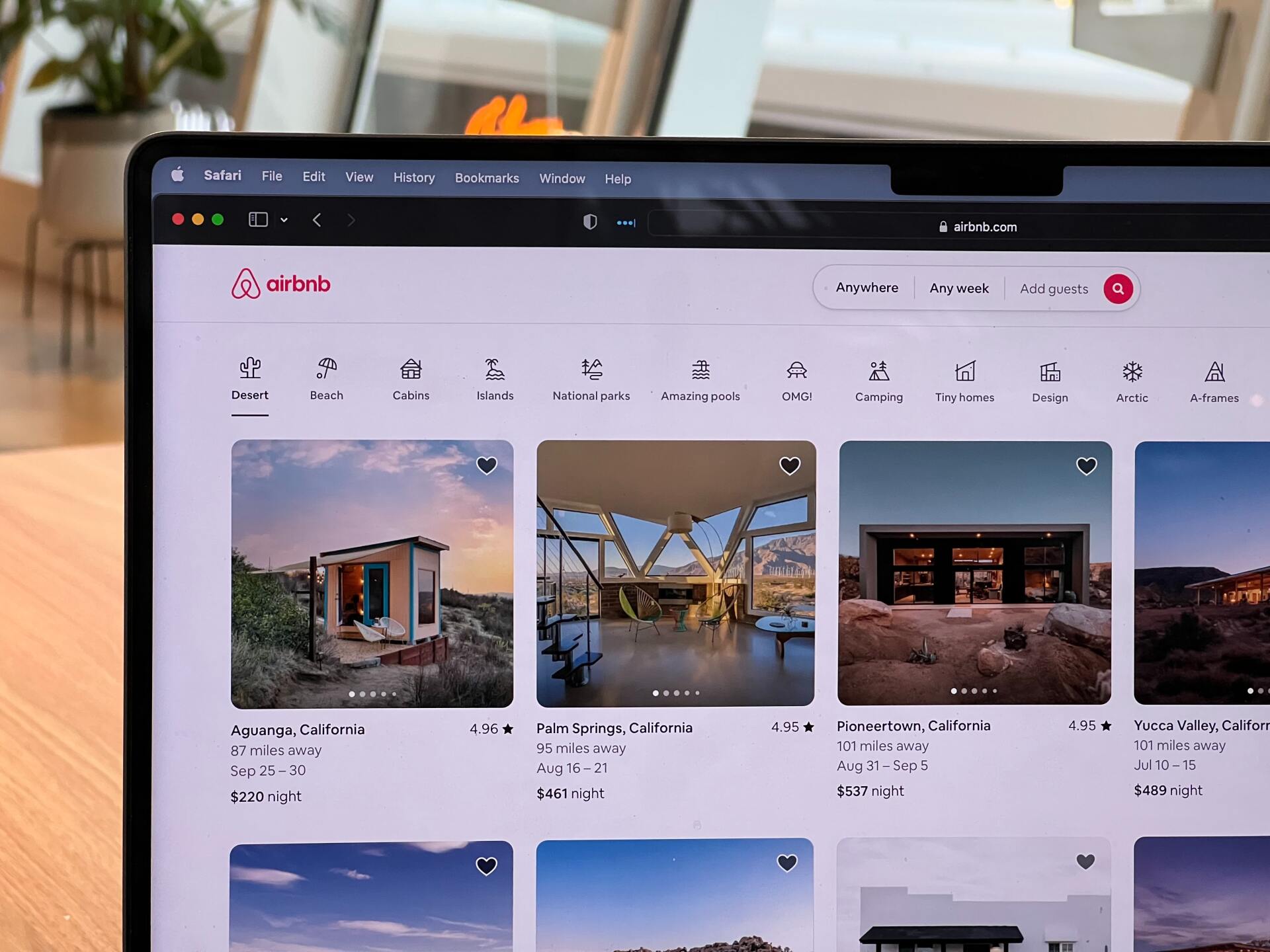
The biggest factor driving growth has been the fundamental shift in what travellers value in their accommodation. Modern guests increasingly prioritise space, privacy, and the ability to maintain normal routines while travelling—all areas where serviced apartments excel.
The pandemic accelerated these existing preferences, with many travellers becoming acutely aware of the limitations of standard hotel rooms during extended stays. The self-contained nature of serviced apartments, with private kitchens and separate living spaces, perfectly aligned with emerging health concerns and the rise of remote working.
Business travellers particularly appreciate the cost-effectiveness of serviced apartments for longer stays and make
up 45% of the serviced accommodation sector. The ability to prepare meals, host small meetings, and work comfortably has transformed serviced apartments from merely a place to sleep into a comprehensive living and working solution.
Sustainability Credentials
An increasing focus on environmental impact has also benefited the serviced apartment sector. The reduced daily housekeeping, lower energy consumption per guest, and decreased single-use product waste compared to traditional hotels have strengthened the sustainability credentials of serviced apartments.
Operators such as Celador Apartments have embraced green initiatives, such as energy-efficient appliances and locally sourced furnishings. These practices appeal to environmentally conscious travellers and corporate clients with sustainability commitments, creating another competitive advantage over traditional accommodation options.
Ready to Experience Celador Apartments?
Celador Apartments has been at the forefront of providing and managing premium serviced apartments for over a decade. Our properties combine the comfort and space of home with the convenience and service of a high-end hotel—perfect for both business and leisure travellers seeking quality accommodation in Reading.
To discover more about our portfolio of exceptional apartments or to book your next stay, please get in touch with our friendly team today.
Share now:

